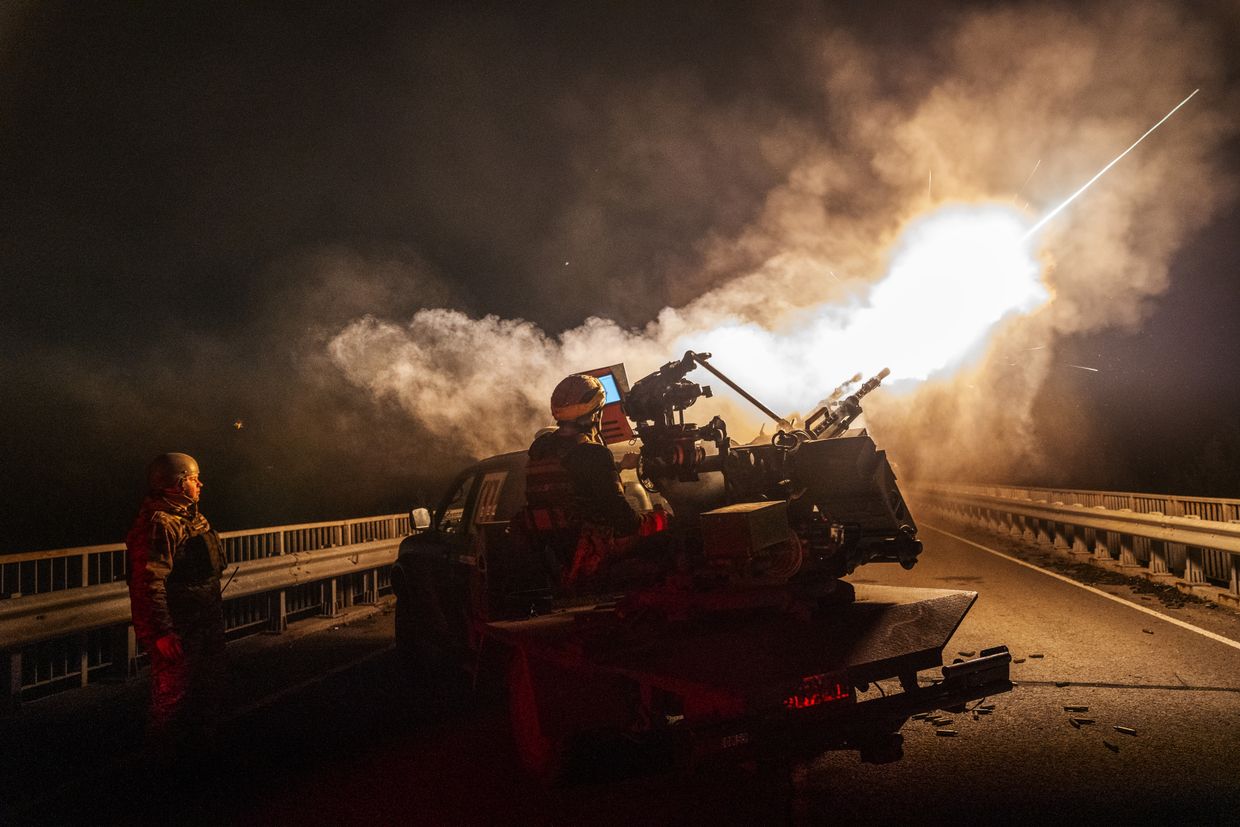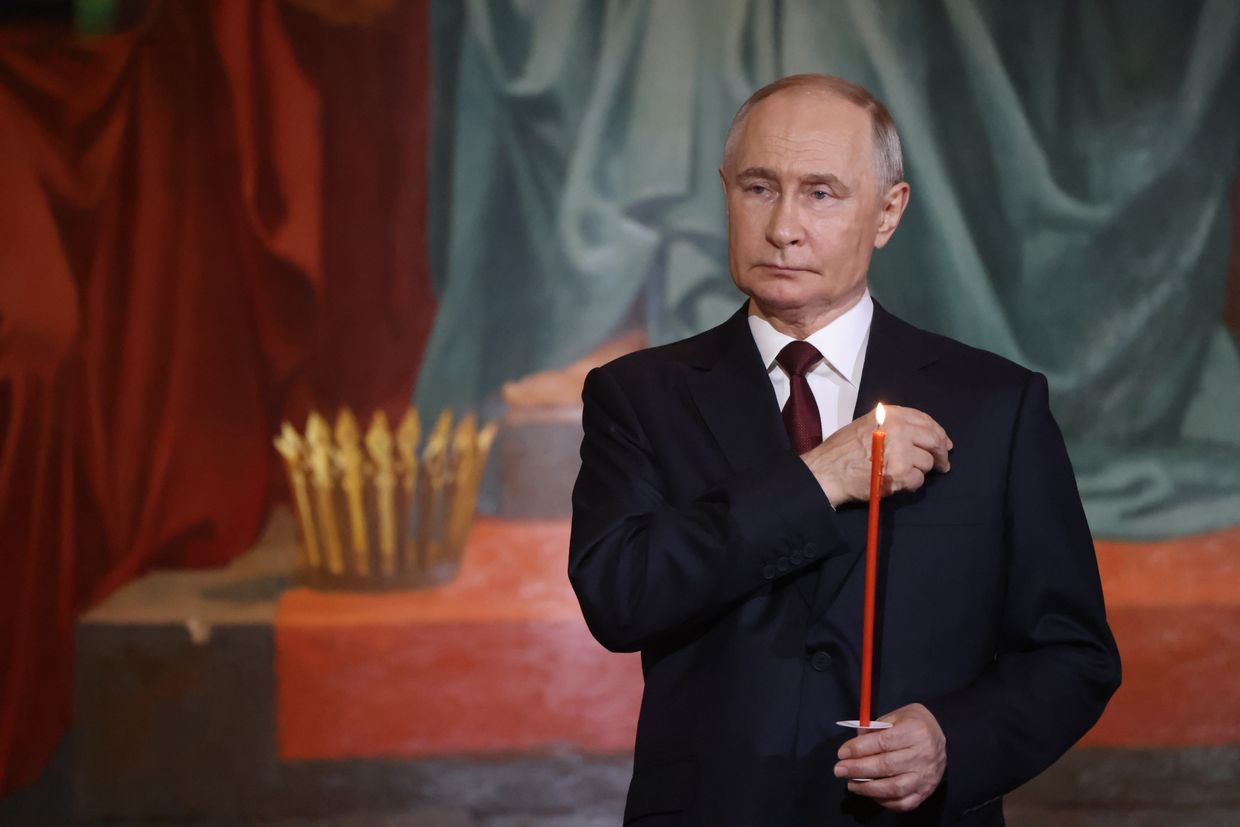'I don't think Putin will agree to a peace agreement ever' — Volker on peace talks between Ukraine, Russia

Kurt Volker, a former U.S. special representative for Ukraine, does not believe that Russian President Vladimir Putin will ever agree to a negotiated peace deal, he said during an open discussion on May 9 at the American University Kyiv, attended by the Kyiv Independent journalist.
The Trump administration has been attempting to bring Kyiv and Moscow to the negotiating table. Yet, progress has been limited. Trump's team has pressured Kyiv to make concessions to Russia without applying visible pressure on Moscow to halt its aggression.
Volker said that now "there is more alignment" between Ukraine and the U.S. under the Trump Administration than at the beginning of 2025, when U.S. President Trump and Vice President JD Vance sharply criticized President Volodymyr Zelensky over what they described as "a lack of gratitude for U.S. support."
According to Volker, the talks between the U.S., Ukraine, and Russia have shown that the latter is not willing to end the war, which is shifting the pressure point away from Kyiv to Moscow.
"I don't think Putin will agree to a peace agreement ever," Volker said. "I think we'll end up with a standoff."
The diplomat also said that Putin is unlikely to agree to a ceasefire before the fall.
"He (Putin) wants to play games. He wants to see what he can get the Trump administration and the West to give him for free. He wants to try a summer offensive and see if he can grab more territory. He wants to see if his financial situation improves. So, he's going to play this for a while," Volker said.
Volker suggested that Putin would agree to a ceasefire later in the fall if the allies succeed in imposing tougher sanctions on Russian gas, oil, and financial transactions, the Kremlin's financial situation worsens, and a potential summer offensive fizzles.
"And if that's the case, I think that's a good thing," he said.
"Then we must work harder and faster than Russia. We must help Ukraine rebuild its military capabilities, bring people home, strengthen the economy, bring in foreign investment, and accelerate negotiations with the EU," the diplomat added.
The discussion with Volker occurred on May 9, when Russia celebrated Victory Day, one of the biggest national events, commemorating the Soviet Union's victory over Nazi Germany in World War II. The annual event is a key part of Putin's propaganda efforts to justify its aggression against what the Kremlin falsely describes as "Nazis" in Ukraine.
Ahead of the celebrations, the Kremlin announced a 3-day ceasefire, also calling it the beginning of "direct talks" with Ukraine.
Ukraine's Foreign Minister Andrii Sybiha replied, saying that Kyiv is ready for talks in any format "as soon as it sees that Russia is really ready for a difficult path to peace, and not just for 'peaceful populism' or a short-term propaganda ceasefire for the sake of the May 9 parade."
Volker said that he does not believe in the productivity of direct talks with Russia and Ukraine, adding that they can only be effective in limited ways, such as contacts aimed at prisoner exchanges, limited ceasefires in a particular area, and refraining from attacking energy infrastructure on both sides.
"As much as it's frustrating and worrisome for Ukrainians that it's the U.S. doing the talking to Russia, I think it's better than just Russia and Ukraine on their own. I think this puts a set of limits around what Russia can do," the diplomat said.
More than 100 days have passed since the U.S. administration began efforts to broker peace between Ukraine and Russia, despite U.S. President Trump's campaign promise to end the war in one day.
Kyiv accepted an unconditional 30-day U.S.-backed ceasefire proposal in March, but Moscow rejected it, demanding a complete end to Western military support for Ukraine.
Russia has repeatedly proclaimed its supposed readiness for peace talks while simultaneously pushing for maximalist demands. Kyiv has dismissed these declarations as a propaganda stunt, noting that Russian forces have only intensified their attacks on Ukrainian cities and towns.













